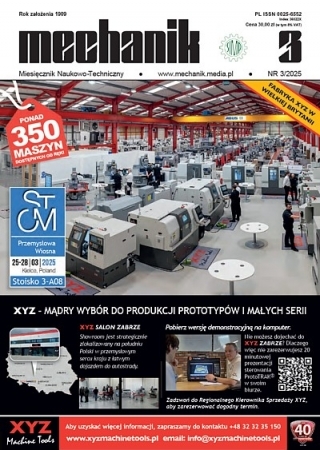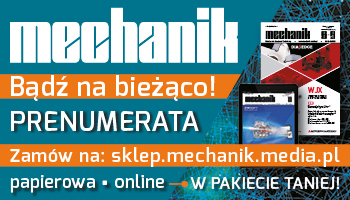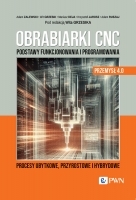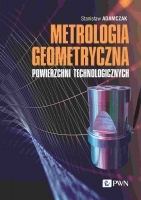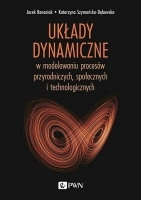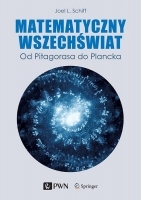Modelowanie zjawisk mechanicznych i cieplnych występujących podczas spiekania w toroidalnych kowadłach Bridgmana*
Modeling of mechanical and thermal issues occurring during sintering operation in the Bridgman-type toroidal anvils
Mechanik nr 03/2015 - Biuletyn Instytutu Zaawansowanych Technologii Wytwarzania
STRESZCZENIE: Przedstawiono główne założenia, pozwalające na modelowy opis zagadnień mechanicznych i cieplnych występujących podczas spiekania z użyciem toroidalnych kowadeł Bridgmana. Na ich podstawie skonstruowano modele obliczeniowe, w których wykorzystano rzeczywistą geometrię kowadeł i wszystkich części składowych istotnych dla modelowanego procesu. Obliczenia wykonano metodą elementów skończonych, z zastosowaniem komercyjnego środowiska obliczeniowego ANSYS. Uzyskane wyniki porównano z wartościami zarejestrowanymi podczas pomiarów kontrolnych, co pozwoliło na potwierdzenie słuszności przedstawionych założeń w obszarze zjawisk cieplnych.
SŁOWA KLUCZOWE: toroidalne kowadło Bridgmana, metoda elementów skończonych, spiekanie.
ABSTRACT: The paper presents basic requirements providing for exemplary description of mechanical and thermal issues that occur during sintering operation in the Bridgman-type toroidal anvils. To meet these requirements, calculation models were developed, where actual geometry of the anvil and all components relevant to the modeled process were applied. The calculations were carried out to the finite element method using ANSYS commercial computing environment. Simulation results were compared with the values collected during control measurements, which confirmed the presented requirements in relation to the thermal phenomena scope.
KEYWORDS: Bridgman-type toroidal anvil, finite element method, sintering.
BIBLIOGRAFIA / BIBLIOGRAPHY:
- Eremets M.I. “High Pressure Experimental Methods”. Oxford University Press, 1996.
- Sung C.M. “A century of progress in the development of very high pressure apparatus for scientific research and diamond synthesis”. High Temperatures-High Pressures. Vol. 29. 3 (1997): pp. 253÷293. DOI: 10.1068/htrt111.
- King J.H. “Choice of materials for use in compressible-gasket high- -pressure apparatus”. Journal of Scientific Instruments. Vol. 42. No. 6 (1965): pp. 374÷380.
- Prikhna A. “High-pressure apparatuses in production of synthetic diamonds (Review)”. Journal of Superhard Materials. Vol. 30. Iss. 1 (2008): pp. 1÷15. DOI: 10.3103/S1063457608010012.
- Klimczyk P. “Silicon Carbide – Materials, Processing and Applications in Electronic Devices”. In: Mukherjee M., ed. cdn.intechweb. org, InTech; 2011, pp. 309÷334. DOI: 10.5772/852.
- Dutkiewicz J., Maziarz W., Jaworska L., Zapala K. “Ultra High Pressure Consolidation of Ball Milled Nanocrystalline TiTaNb Alloys”. Materials Transactions. Vol. 48. No. 5 (2007): pp. 909÷914. DOI: 10.2320/matertrans.48.909.
- Onodera A., Ohtani A. “Fixed points for pressure calibration above 100 kbars related to semiconductor-metal transitions”. Journal of Applied Physics. Vol. 51. Iss. 5 (1980): pp. 2581÷2585. DOI: 10.1063/1.327984.
- Turkin A. “Lead selenide as a continuous internal indicator of pressure in solid-media cells of high-pressure apparatus in the range of 4÷6.8 GPa. High Temperatures-High Pressures. Vol. 35/36(3) (2003): pp. 371÷376. DOI: 10.1068/htjr112.
- Idesman A.V., Levitas V.I. “Finite element procedure for solving contact thermoelastoplastic problems at large strains, normal and high pressures”. Computer Methods in Applied Mechanics and Engineering. Vol. 126. No. 1 (1995): pp. 39÷66. DOI: 10.1016/0045-7825(95)00757-R.
- Zhilyaev A.P., Gálvez F., Sharafutdinov A., Pérez-Prado M.T. “Influence of the high pressure torsion die geometry on the allotropic phase transformations in pure Zr”. Materials Science and Engineering: A. Vol. 527. Iss. 16–17 (2010): pp. 3918÷3928. DOI: 10.1016/j.msea.2010.02.066.
- Leshchuk A.A., Novikov N.V., Levitas V.I. “Computer Simulation of Physical and Mechanical Processes Running in the Reaction Cells of High-Pressure Installations in the Course of Synthesis of Diamonds”. Strength of Materials. Vol. 33. Iss. 3 (2001): pp. 277÷292. DOI: 10.1023/A:1010472414042.
- Li Z.C., Jia X.P., Huang G.F., Hu M.H., Li Y., Yan B.M. et al. “FEM simulations and experimental studies of the temperature field in a large diamond crystal growth cell”. Chinese Physics B. Vol. 22. No. 1 (2013). DOI: 10.1088/1674-1056/22/1/014701.
- Novikov N.V., Levitas V.I., Shestakov S.I. “Study of the stress state of the mechanical elements of high-pressure equipment”. Strength of Materials. Vol. 16. Iss. 11 (1984): pp. 1550÷1556. DOI: 10.1007/BF01529504.
- Fukunaga O., Yamaoka S., Akaishi M., Kanda H., Osawa T., Shimomura O. et al. „Large-Volume Flat Belt Apparatus”. In: Manghnani M.H., Syono Y., eds. High-Pressure Res. Miner. Phys. A. Vol. Honor Syun-iti Akimoto. Vol. 39, Washington, D. C.: American Geophysical Union, 1987: pp. 17÷28. DOI: 10.1029/GM039.
- Novikov N.V., Levitas V.I., Polotnyak S.B., Potemkin M.M. “Numerical method for optimizing the design of a high-pressure apparatus with diamond anvils”. Strength of Materials. Vol. 26. Iss. 4 (1994): pp. 294÷302.
- Fontanari V., Bellin F., Visintainer M., Ischia G. “Study of Pressure Sensitive Plastic Flow Behaviour of Gasket Materials”. Experimental Mechanics. Vol. 46. Iss. 3 (2006): pp. 313÷323. DOI: 10.1007/s11340-006-7105-1.
- Turbinsky S., Urbanovich V., Antonovich V. “Simulation of stress-deformed states of apparatus for high pressure sintering of nanomaterials”. Reviews on Advanced Materials Science. Vol. 20. No. 2 (2009): pp. 136÷142.
- Li R., Ma H.A., Han Q.G., Liang Z.Z., Yin B.H., Liu W.Q. et al. “Simulation of pressure distribution in a pyrophyllite high-pressure cell by finite-element analysis”. High Pressure Research. Vol. 27. Iss. 2 (2007): pp. 249÷257. DOI: 10.1080/08957950701385819.
- Figueiredo R.B., Cetlin P.R., Langdon T.G. “Using finite element modeling to examine the flow processes in quasi-constrained high-pressure torsion”. Materials Science and Engineering: A. Vol. 528. Iss. 28 (2011): pp. 8198÷8204. DOI: 10.1016/j.msea.2011.07.040.
- Berg S., Jonsén P., Häggblad H.Å. “Experimental characterization of CaCO3 powder for use in compressible gaskets up to ultra-high pressure”. Powder Technology. Vol. 215–216 (2012): pp. 124÷131. DOI: 10.1016/j.powtec.2011.09.035.
- Jonsén P., Häggblad H., Berg S. “Modelling Ultra High Pressure Compaction of Powder”. Technische Mechanik. Vol. 32. Iss. 2÷5 (2012): pp. 287÷302.
- Fang J., Bull C.L., Loveday J.S., Nelmes R.J., Kamenev K.V. “Strength analysis and optimisation of double-toroidal anvils for high-pressure research”. Review of Scientific Instruments. Vol. 83. Iss. 9 (2012): pp. 093902-0÷093902-10. DOI: 10.1063/1.4746993.
- Debord R., Leguillon D., Syfosse G., Fischer M. “A finite element study of a high-pressure/high-temperature cell for simultaneous X-ray and ultrasonic measurement”. High Pressure Research. Vol. 23. Iss. 4 (2003): pp. 451÷463. DOI: 10.1080/08957950310001609421.
- Rangel J.J. de A., Monteiro S.N., Bobrovnitchii G.S. “Mathematical Modeling for Computational Simulation of the Temperature Distribution during the Synthesis of Polycrystalline Diamond”. Matéria. Vol. 11. No. 1 (2006): pp.: 48÷59.
- Gu X., Li R., Tian Y. “Finite element simulation of the temperature field in the large volume cubic high pressure apparatus cavity”. Journal of Crystal Growth. Vol. 390 (2014): pp. 109÷113. DOI: 10.1016/j.jcrysgro.2013.12.044.
- Koichin A.V., Veprintsev V.I., Klyachko L.I., Novgorodov A.S., Zubkov V.M., Vereschagin L.F. et al. Device for building-up high pressure. US Patent 4,290,741, 1981.
- Pierson H.O. “Handbook of Carbon, Graphite, Diamonds and Fullerenes”. Oxford: Elsevier, 1993. DOI: http://dx.doi.org/10.1016/B978-0-8155-1339-1.50001-3.
- Li X., Mao H. “Solid carbon at high pressure: Electrical resistivity and phase transition”. Physics and Chemistry of Minerals. Vol. 21. Iss. 1–2 (1994): pp. 1÷5.
- Pierson H.O. “Handbook of refractory carbides and nitrides”. Westwood, NJ: William Andrew Publishing, 1996.
- Carte A.E. “Thermal constants of pyrophyllite and their change on heating”. British Journal of Applied Physics. Vol. 6. Iss. 9 (1955): pp. 326÷328. DOI: 10.1088/0508-3443/6/9/307.
- Chen W., Decker D.L. “Pressure dependence of the thermal conductivity of pyrophyllite to 40 kbar”. Journal of Applied Physics. Vol. 71. Iss. 6 (1992): pp. 2624÷2627. DOI: 10.1063/1.351056.
- Fatigue Data at zero mean stress comes from 1998 ASME BPV Code, Section 8, Div 2, Table 5-110.1 1998.
- Levitas V.I., Polotnyak S.B., Idesman A.V. “Large elastoplastic strains and the stressed state of a deformable gasket in high pressure equipment with diamond anvils”. Strength of Materials. Vol. 28. Iss. 3 (1996): pp. 221÷227.
- Mii H., Fujishiro I., Kuwabara M. “Radial Pressure Variation in Pyrophyllite Discs Compressed by Bridgman-Type Anvils”. Bulletin of the Japan Society of Precision Engineering. Vol. 3. No. 4 (1970): pp. 79÷83.
- Polotnyak S.B., Idesman A.V. “Numerical modelling of the mechanical state of deformable gaskets in diamond anvil cell”. Journal of Materials Processing Technology. Vol. 60. Iss. 1÷4 (1996): pp. 685÷690. DOI: 10.1016/0924-0136(96)02405-3.





